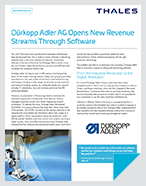
What is an Open-Source Software License?
An open-source software license is a type of license for software that can enable the source code to shared, modified, or used under terms and conditions. This allows companies or users to modify the source code as needed. In most cases, this type of license tends to be available for free.
What Are The Advantages of Open Source Software vs Proprietary Software?
The advantages of open-source software include a lower cost and more accessibility to the source code of a project. Open-source software often promotes more creativity and allows for more customization.
See also: Proprietary Software License
What is the Comparison Between Free Software and Open-Source Software?
The difference between free software and open-source software is that open-source software can be modified, improved upon, or even profited from while adhering to the four pillars of freedom according to the Free Software Foundation. Open-source software is mainly a design philosophy in which the source code should always be publicly available and should never discriminate against persons or groups.

Software Packaging and Pricing Strategies for the Cloud - White Paper
Lucrative Pricing and Packaging Strategies for the Cloud Today, Tomorrow, and Beyond Software pricing and packaging is an art form regardless of whether it’s delivered as a service or as physical on premise software. There is also a lot of science involved. This paper...

Create New Software Licensing Revenue Streams - DürKopp Adler Case Study
Create New Software Licensing Revenue Streams like Durkopp Adler - Case Study DürKopp Adler AG Opens New Revenue Streams through Software You won’t find many more quintessential examples of hardware than sewing machines. Still, in today’s world, software is becoming...



